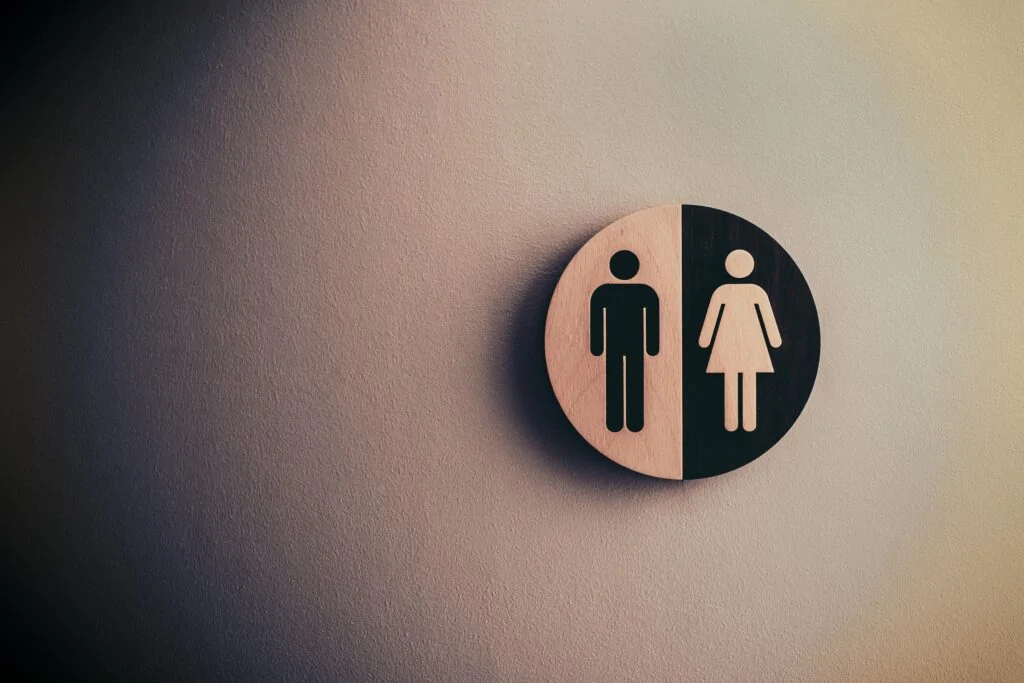From birth, we are programmed to assign many characteristics to our gender. From the colors of our clothing to the hobbies we are involved in, traditional gender stereotypes tend to run the world. For many people, there’s no question that the gender they are biologically assigned is correct. They tend to identify with most parts of the gender identity, and if not, still feel comfortable in their own body.
You may be asking what is Gender Dysphoria? For some people, starting as early as childhood, there’s a feeling that the gender that they were assigned isn’t correct. Often feeling like they don’t identify at all with the gender they were assigned, some people can never shake the feeling that something isn’t quite right. Termed gender dysphoria, this distress around feeling to be a different gender than assigned can have a huge impact on quality of life. Often kept in the dark, many people suffer from this pain daily.
Download HER app
Quick Definition
Gender dysphoria is defined as clinically significant distress or impairment related to a strong desire to be another gender. It’s also associated with clinically significant distress or impairment in social, occupational, or other important areas of functioning.
Although it’s significantly associated with transgender individuals, it’s important to note that not all transgender people experience it.
What Causes It?
You may be concerned that you’re possibly suffering from gender dysphoria because you feel a lack of identity with your assigned gender. While many different experiences can constitute gender dysphoria, psychologists use some common signs to diagnose the experience.
Some signs that you may be experiencing gender dysphoria are:
- A marked difference between your inner gender and primary or secondary sex characteristics or anticipated secondary sex characteristics in young adolescents.
- A strong desire to be rid of primary and/or secondary sex characteristics because of a marked difference with your inner gender identity, or a desire to prevent the development of anticipated secondary sex characteristics in young adolescents.
- A strong desire for the primary and/or secondary sex characteristics of the other gender.
- A strong desire to be of the other gender or an alternate gender different from the assigned gender.
- A strong desire to be treated like the other gender or an alternate gender different from the assigned gender.
- A strong feeling that you have typical feelings and reactions of the other gender or an alternate gender different from the assigned gender.
While having only one of these signs may not be an indicator, experiencing multiple symptoms may point to these feelings.
Gender Identity Explained
Explaining gender identity can be a bit confusing, as we learn new ways to express ourselves. The definition constantly changes and expands, but the concept is very important in understanding gender dysphoria.
Gender identity is loosely defined as our internal experience and naming of our gender. It can correspond or differ from the gender we are assigned at birth. We’re not able to choose the gender that we are biologically assigned, however, we can change our gender identification later in life.
The most common gender identifications are “man” and “woman”. The gender binary refers to the idea that there are only two genders and each individual must identify as one of those genders. People may identify as one of those genders and present stereotypically as that identified gender.
However, some people may feel a mismatch with their internal sense of self and gender. Their gender expression, which is how a person presents outwardly in ways such as behavior, clothing, or even voice, may be different than their biological gender. This is due to society assigning masculine or feminine to people based on their outward appearance.
Many people, particularly younger people, are using genders outside the gender binary. Terms such as non-binary and genderqueer have become more common for those who don’t feel that they identify within the typical spectrum.
Ways to Cope with Gender Dysphoria
Dealing with gender dysphoria can take a major toll on a person’s mental state. It’s important to take care of yourself when going through this struggle. Some ways you can show love to yourself are:
- Get support from someone you trust. This can be a trusted friend, family member, or even a counselor.
- Finding a community of people with similar experiences. This can be online or in person.
- Use binders, girdles, packers, makeup, and more to help express your authentic gender.
- Express your feelings. This can be done by journaling, recording videos, blogging, creating art, writing, or making music.
- Say positive affirmations to yourself daily.
- Exercising is a great way to blow off some steam.
- If possible, start making long-term medical plans for transitioning.
Most importantly, be patient with yourself. Understand that you’re going through an immense mental struggle and some days will feel good, while others will feel bad. Understand that this is temporary and there are options to help you express your true identity.
You’re Not Alone
Many people suffer from feeling a disconnect between their biological gender and the gender they’d like to present and live as. Due to fear of misunderstanding or ridicule, those going through gender dysphoria tend to suffer in silence for years before being comfortable. It’s important to know that there are many communities of people who offer love and support in these situations. Reaching out to someone can be incredibly scary, but the comfort of having chosen family to lean on can make this a lot less distressing.
A Safe Space for All Gender Identities at HER
HER is a welcoming community for all gender identities. You can feel free to express yourself and present yourself in the best way that you see fit. Meet people one on one or join events or communities full of very understanding people. You may meet your new chosen family or your special someone. HER has someone for everyone!
Download HER app







